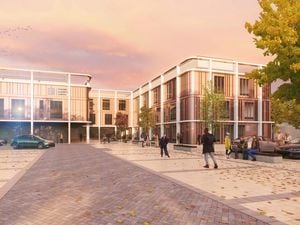Clouding the issue
ONE of the problems with politics is that while most clouds have a silver lining the converse is also true. Most political silver linings are surrounded by dark clouds.

Very few trends represent unalloyed good news. Solving one problem tends to exacerbate another. Let me give you three examples.
Guernsey’s economy is doing fairly well. Yes, the island does face some large and unwelcome spending pressures, but most of the other fundamentals seem to be sound.
There is a steady increase in the number of jobs in Guernsey and average earnings are showing a modest but consistent real terms rise.
On top of that the percentage of islanders in work or full time employment (birth to death) went up again in the latest figures to an impressive 66%. That is certainly the highest figure for a number of years and I am pretty sure it’s the highest ever. It firmly gives the lie to any suggestion that an ageing population automatically leads to a dwindling workforce.
Elsewhere we see a healthy property market, which is usually a pretty reliable secondary economic indicator.
So is it good news all the way? I’m afraid not.
A growing economy, with an increasing number of jobs on offer, is often the prime driver of population growth and we can see that happening very clearly.
I won’t go into any great depth over why I perceive this as a problem because I did that in an article three months ago. In short I love diversity and the impact of new blood but I do simply worry about sheer numbers in an increasingly overcrowded and congested island. I think that’s a concern shared by the vast majority of island residents – both natives and incomers.
What sparked my article three months ago was the latest population figures, which showed that in the year to September 2018 the number of people living in Guernsey had gone up by 319. I issued two warnings.
The first was that if (a big if) our population kept growing at that rate we would reach 70,000 souls within about 20 years. The second was that the rate of growth was accelerating so our population could actually go up much quicker than that. The latest figures, released a few weeks ago, sadly prove that point.
By the end of 2018 annual population growth was a worrying 460. That would lead to Guernsey reaching 70,000 residents in just 16 years. but of course we are still seeing an accelerating trend so it could come much sooner.
Can I be sure that this is really an undesirable side-effect of our very welcome economic success. Yes I can. Obviously the raw numbers alone don’t prove that. It might be all down to something in the water causing lots of babies to be born to Guernsey families. But it’s not.
In fact the ‘natural’ change in Guernsey’s population last year was minus 48. In other words there were 48 fewer births than deaths in the island. This is typical of falling fertility rates throughout developed economies and from a global/environmental point of view is very welcome indeed.
Those quick off the mark will have worked out that a natural decrease of 48 alongside a population increase of 460 = a net migration figure of 508. Every one of those incomers is most welcome as an individual but from the point of view of quality of life, pressure on infrastructure, congestion and so on the trend to ever faster population growth is a real worry.
Almost certainly the level of net migration is linked to job creation so what do we do? I accept that deliberately suppressing economic growth is both difficult and dangerous and could easily lead to a very unwelcome and unplanned destination. Then again constant economic growth predicated on constant population growth is also a very poor prospect in my opinion. Not sure most of my colleagues share that latter concern though.
Let’s look at another issue that can be seen as either a positive or a negative. We are told that since the introduction of ‘quasi open skies’ passenger movements at Guernsey airport have risen by more than 5%.
Personally I am withholding judgement as I think the policy was always going to have instant wins, with new routes free to start up, but longer term losses with established routes eventually being closed or scaled back as no longer being viable. But for the sake of argument let’s assume the boost in the number of people flying to and from Guernsey is permanent. Is that a good or bad thing?
Well both. It is good for our economy and for the viability of our airport but aren’t we told that we all need to fly less often these days to tackle climate change?
I accept it is not straightforward because if someone from the UK chooses to take a weekend break in Guernsey instead of Amsterdam or Prague that won’t really add to the amount of greenhouse gasses in the atmosphere. Still, I think with the current concerns over the possibility of reaching an irreversible tipping point in climate change, politicians should think twice before announcing ‘rejoice for more people are flying in and out of our airport’.
My last example is house prices. As with the other two there is a tension between economic and social imperatives.
Remember the doom and gloom only a couple of years ago when very few properties were being sold in Guernsey and average purchase prices were dropping? It was portrayed as a clear indicator of an economy in the doldrums and going nowhere.
Individuals felt less wealthy as the value of their main asset dropped, even though unless they owned two houses or were leaving the island they would be buying and selling in the same market. Those who had bought at the end of the previous housing boom even faced the prospect of negative equity.
Now the situation is very different with a high level of sales and rising prices. Property owners have a spring in their step because they see the silver lining. Of course if you are trying to get on the property ladder for the first time your focus is very much on the dark clouds of unaffordability. That is also true of tenants because most landlords target a percentage return on the value of their properties.
It is all a question of perspective but deputies really have to consider issues from all angles. Of course they get no credit for the positives of any situation but plenty of grief for the downsides. That simply goes with the territory.





